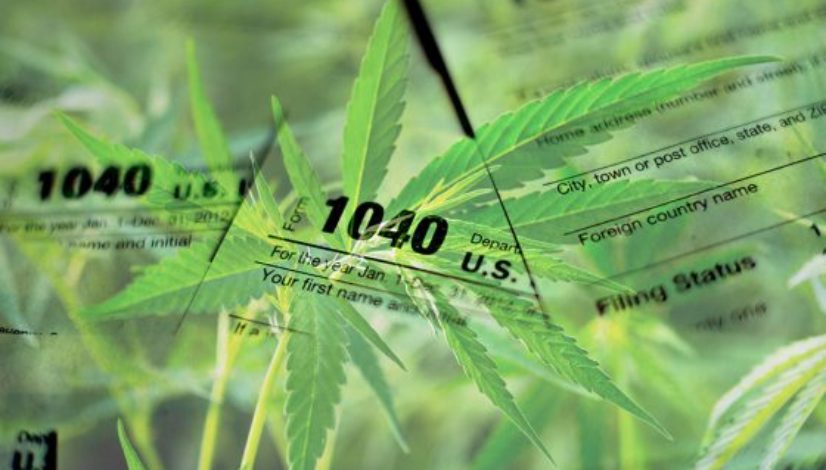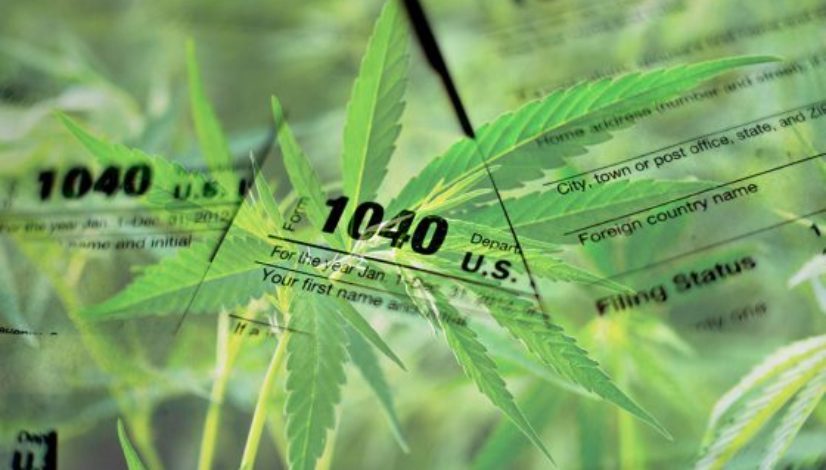IRS targeted nonprofits with names including “medical marijuana,” “progressive”

Published: Oct 6, 2017, 11:41 am • Updated: Oct 6, 2017, 12:08 pm
By Mike Debonis, The Washington Post
A federal watchdog has identified as many as 146 cases in which the Internal Revenue Service may have targeted liberal-leaning groups for extra scrutiny based on their names or political leanings, a finding that could undermine claims that conservatives were unfairly targeted under President Barack Obama.
The Treasury Inspector General for Tax Administration (TIGTA) reviewed cases between May 2010 and May 2012, around the same period TIGTA previously examined in a 2013 report that faulted the IRS for using inappropriate political criteria to select groups for heightened scrutiny.
That earlier report found that 96 groups with names referencing “Tea Party,” “Patriot” or “9/12” were selected for intensive review, and the House Ways and Means Committee later identified another 152 right-leaning groups that were subjected to scrutiny. Those findings fueled accusations by Republican lawmakers that the Obama administration engaged in politically motivated targeting of conservatives.
But Democrats have long challenged those claims, arguing that liberal-leaning groups were given close scrutiny alongside the conservative groups. The 2013 TIGTA report, they argued, was based on selective criteria that omitted numerous nonconservative groups that were also subjected to close IRS review.
Related stories
- DOJ secretly using IRS to investigate Colorado marijuana businesses, lawsuit says
- 110 pounds of weed bought with IRS undercover funds, a traffic stop, then death
- Federal blocks removed, California medical marijuana ‘Godmother’ back in business
- IRS trawling state-run pot database to block Colorado marijuana companies from claiming tax deductions
- Hero with a calculator: California treasurer asks Trump for guidance on pot banking issues
The new TIGTA report examines a broader range of criteria used by the IRS at the time, including groups affiliated with the now-defunct Association of Community Organizations for Reform Now (ACORN), as well as others referencing “Progressive,” “Green Energy,” “Medical Marijuana” and “Occupy.”
Together, the watchdog identified 146 cases in which the IRS examined left-leaning groups for suspicion of engaging in disallowed political activity. Eighty-three of those were definitively chosen for scrutiny because of the selection criteria, the inspector general found; the report could not definitively determine how the other cases were chosen.
The Washington Post reviewed a version of the TIGTA report dated Sept. 28 that has been circulated to various lawmakers and committees on Capitol Hill. The full report is set to be released to the public Thursday.
The new report reiterates the inspector general’s earlier criticism of the IRS review process at the time, calling it “inappropriate” to target groups for scrutiny based on their names rather than on actual evidence of illicit political activity that would leave them ineligible for tax exemptions.
Groups that were selected for review waited months – years, in some cases – for their applications to be reviewed and were subjected to onerous and, in some cases, improper requests for information on their donors and activities.
For instance, IRS personnel were told starting in 2010 to watch out for groups that had affiliations with ACORN, a national network of community-based organizations that had collapsed amid allegations of wrongdoing by conservative activists. Ultimately, at least 13 applications for tax exemptions were flagged for scrutiny based on possible ACORN ties, and most of those groups waited over a year for their cases to be resolved, the report said – mirroring many of the allegations leveled regarding conservative groups.
The report does not make recommendations for further changes to IRS policy, noting that the agency has “completely revamped the process for reviewing tax-exempt applications” since the period in question.
Other entities have examined the IRS’s handling of nonprofit groups at the time and concluded that conservatives were affected disproportionately. The Senate Finance Committee, for instance, concluded in 2015 that most of the groups whose applications were given extra scrutiny were “Tea Party and conservative groups” but also acknowledged that some left-leaning groups “experienced lengthy processing delays and inappropriate and burdensome requests for information.”
Four years after the targeting allegations prompted the resignation or retirement of three top IRS officials, the controversy has continued to simmer in Republican circles. GOP lawmakers this year pressed the Justice Department under President Donald Trump to revisit the matter and prosecute former IRS official Lois Lerner, who directed the unit that screened organizations for tax exemptions, for obstruction of justice.
In a letter to congressional officials last month, Assistant Attorney General Stephen Boyd said that the Justice Department “determined that reopening the criminal investigation would not be appropriate based on the available evidence.” Lerner has denied any criminal wrongdoing.
House Ways and Means Committee Chairman Kevin Brady, R-Texas, lambasted the decision.
“It sends the message that the same legal, ethical, and Constitutional standards we all live by do not apply to Washington political appointees – who will now have the green light to target Americans for their political beliefs and mislead investigators without ever being held accountable for their lawlessness,” he said in a Sept. 8 statement.
Brady said in a statement Wednesday that the new TIGTA report “reinforces what government watchdogs and congressional investigators have confirmed time and time again: bureaucrats at the IRS, such as Lois Lerner, arbitrarily and haphazardly administered the tax code and targeted taxpayers based on political ideology.”
He pledged to “continue holding the IRS accountable for their actions.”
Rep. Sander Levin, D-Mich., who served as the top Democrat on the Ways and Means Committee during the height of the IRS scandal, said Wednesday that the report confirmed “political manipulation by the Republicans.”
“They were trying to squeeze whatever political juice they could out of this,” he said. “Incompetence is different than a political witch hunt. There never was one, at least one that anybody could identify.”
Topics: activism, advocacy, irs, medical marijuana




